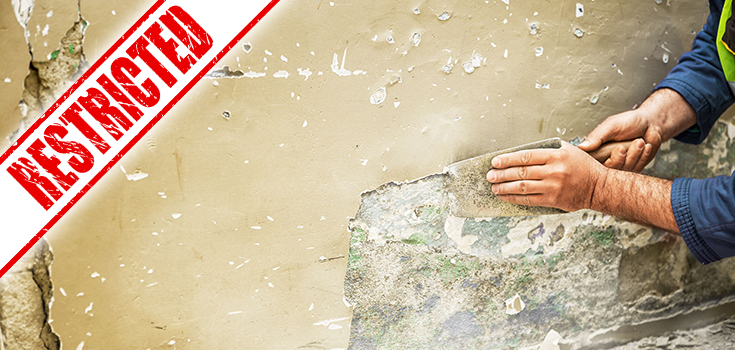EPA Bans Household Use of Paint Stripper, but Not Commercial Use

The U.S. Environmental Protection Agency (EPA) on Friday banned retail sales of methylene chloride, a popular but highly dangerous paint-stripping chemical, but opted to leave it on the market for commercial use – a decision that angered some health advocates.
The agency banned methylene chloride due to “acute fatalities that have resulted from exposure to the chemical.” The agency said that the substance poses “unreasonable health risks.”
Methylene chloride exposure is tied to at least 64 deaths, according to the advocacy group Safer Chemicals, Healthy Families, which had advocated against the chemical.
Exposure to the paint stripper ingredient can cause fluid to build up in a person’s lungs, along with headaches, dizziness, and difficulty walking, the U.S. Centers for Disease Control and Prevention (CDC) warns. Serious or repeated exposures can lead to brain damage, and high levels of exposure can cause “fainting and even death,” according to the agency.
Alexandra Dunn, the assistant administrator for chemical safety, said that if the agency determines that “the risks to users of this chemical for paint and coating removal in the workplace cannot be managed, then EPA would make a legal finding again under the statute and make the appropriate risk management decision, which could be banning it or restricting its use in some way.”
The ban is expected to go into effect sometime in November.
Some retailers have already taken products containing methylene chloride off of store shelves, including Home Depot, Sherwin Williams, and Lowe’s.
The Environmental Working Group (EWG) doesn’t believe the ban goes far enough and criticized the Trump administration for making “a significant retreat” and not extending the ban for commercial use, with one EWG attorney accusing the administration of “catering to the wishes of the chemical industry.”
Environmental groups said that prior to the March 15 ban, they had been unable to think of more than 1 instance in which the Trump administration tightened, rather than loosened, environmental or public health protections. [2]
The ban had also been championed by the families of individuals who died after being exposed to methylene chloride, including the family of 21-year-old Kevin Hartley, who had been trained on how to properly use the chemical, and the family of 31-year-old Drew Wynne, who used methylene chloride to clean the floor of his start-up coffee company. Both men died in 2017.
Relatives of the deceased men met with then-EPA Commissioner Scott Pruitt and with lawmakers in 2018 to discuss the matter and encourage a ban.
Sources:
[1] CNN
[2] Associated Press
